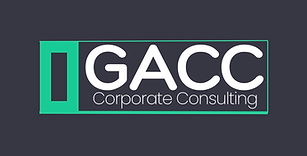Why These 10 Corporate Management Roles Are Reshaping Global Business
- GACC Corporate Consulting
- Jun 30, 2025
- 3 min read

The post-pandemic corporate world isn’t just digitizing—it’s reprioritizing leadership itself. From AI to geopolitics, the very structure of executive roles is transforming across industries. But why are some roles rising faster than others?
Below is our ranked list of the top 10 corporate management positions—from lowest to highest in current demand—based not only on hiring trends, but on the depth of global impact, cross-functional importance, and future resilience.
10. Director of Corporate Learning & Capability Development
Why it ranks here: While vital, this role still operates in the background at many firms. Only future-focused organizations see learning agility as a core business driver. That’s changing fast—with AI and automation accelerating the need for real-time skill building.
What they do: They build ecosystems of learning that align business strategy with workforce readiness. Expect to see this role rise as upskilling becomes central to competitive advantage.
9. Chief Financial Officer (CFO) – Reimagined
Why it ranks here: The CFO’s transformation into a digital-savvy, strategy-oriented executive is well underway, but the position remains traditional in many organizations. Its growing link to ESG and AI investment decisions is pushing it into new territory.
What they do: Today’s CFO guides enterprise value creation through capital strategy, scenario modeling, and finance tech adoption—not just cost control.
8. Chief People & Culture Officer (CPCO)
Why it ranks here: With talent wars and burnout on the rise, the CPCO’s role in shaping organizational culture is more visible—but not yet fully embedded across industries. Many firms still treat it as an evolved HR function.
What they do: They drive workforce transformation, from emotional intelligence programs to global DEI strategy, hybrid work policies, and leadership coaching.
7. Director of Geopolitical Intelligence & Strategy
Why it ranks here: A newer role born from necessity. Global firms operating in politically sensitive environments now recognize how deep geopolitical literacy influences everything from supply chains to compliance—but adoption is uneven.
What they do: They provide scenario planning, political risk forecasts, and sovereign engagement advice to protect corporate interests and drive location strategy.
6. Vice President, Global Supply Chain
Why it ranks here: Recent crises (COVID-19, Ukraine, Suez Canal, trade wars) thrust this role into the spotlight. Supply chain resilience is now a board-level discussion, but the elevation of this role to strategic architect still varies by sector.
What they do: They design high-visibility supply networks that are digitally enabled, diversified, and ESG-aligned—especially vital in manufacturing, retail, and healthcare.
5. Chief Digital Transformation Officer (CDTO)
Why it ranks here: Once a temporary role, the CDTO is now viewed as a permanent agent of enterprise reinvention. Demand is surging in mid-sized and legacy firms trying to leapfrog into the digital age.
What they do: CDTOs embed cloud-native systems, automation strategies, and agile cultures, ensuring tech serves strategic—not just operational—objectives.
4. Head of Sustainability & ESG Strategy
Why it ranks here: Sustainability has become synonymous with global competitiveness. Regulatory tailwinds (like CSRD and SEC climate disclosures) are pushing this role up the ladder.
What they do: They ensure environmental goals are embedded into core operations—from net-zero roadmaps to ethical sourcing, stakeholder engagement, and ESG investor relations.
3. Chief Risk Officer (CRO)
Why it ranks here: In a world where cyberattacks, social unrest, and climate risk collide, the CRO role has become indispensable. Firms realize that siloed risk management is no longer viable.
What they do: The CRO brings coherence to the chaos—integrating data from across the organization to forecast, prioritize, and mitigate enterprise threats.
2. Chief Product Officer (CPO)
Why it ranks here: In the age of product-led growth, the CPO now guides not just product success—but business strategy. From SaaS to retail to B2B platforms, firms are investing in customer experience like never before.
What they do: They champion end-to-end product strategy, using market feedback, user data, and cross-functional leadership to ensure innovation drives revenue and retention.
1. Chief Artificial Intelligence Officer (CAIO)
Why it ranks at the top: Every industry—healthcare, finance, education, logistics—is seeking to adopt and scale ethical, ROI-driven AI strategies. The CAIO is a newly essential C-suite role because no one else is equipped to govern both the risks and rewards of enterprise AI at scale.
What they do: They orchestrate AI adoption across departments, define usage policies, mitigate algorithmic bias, and design AI-enabled business models that endure.
Closing Insight: This Isn’t Just a Trend—It’s a Talent Roadmap
These roles aren’t abstract org-chart concepts—they’re a mirror to what global businesses are prioritizing. Whether you're designing leadership programs, planning your own executive trajectory, or crafting corporate certifications, this ranking gives you a compass.




Comments